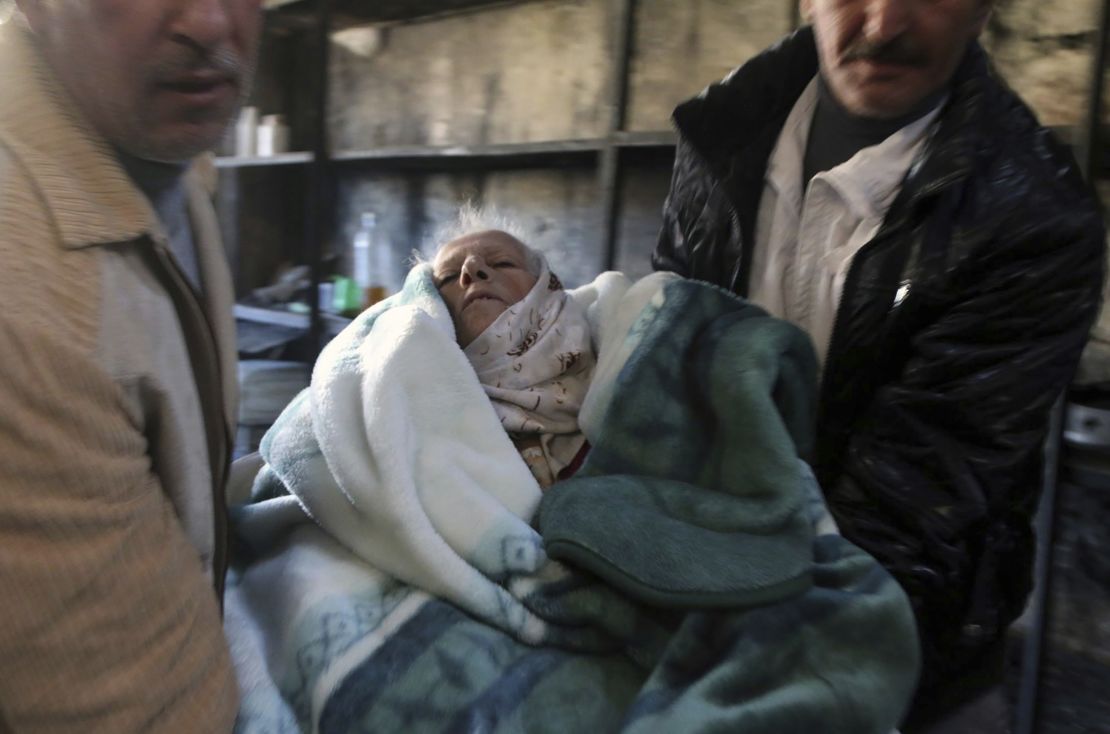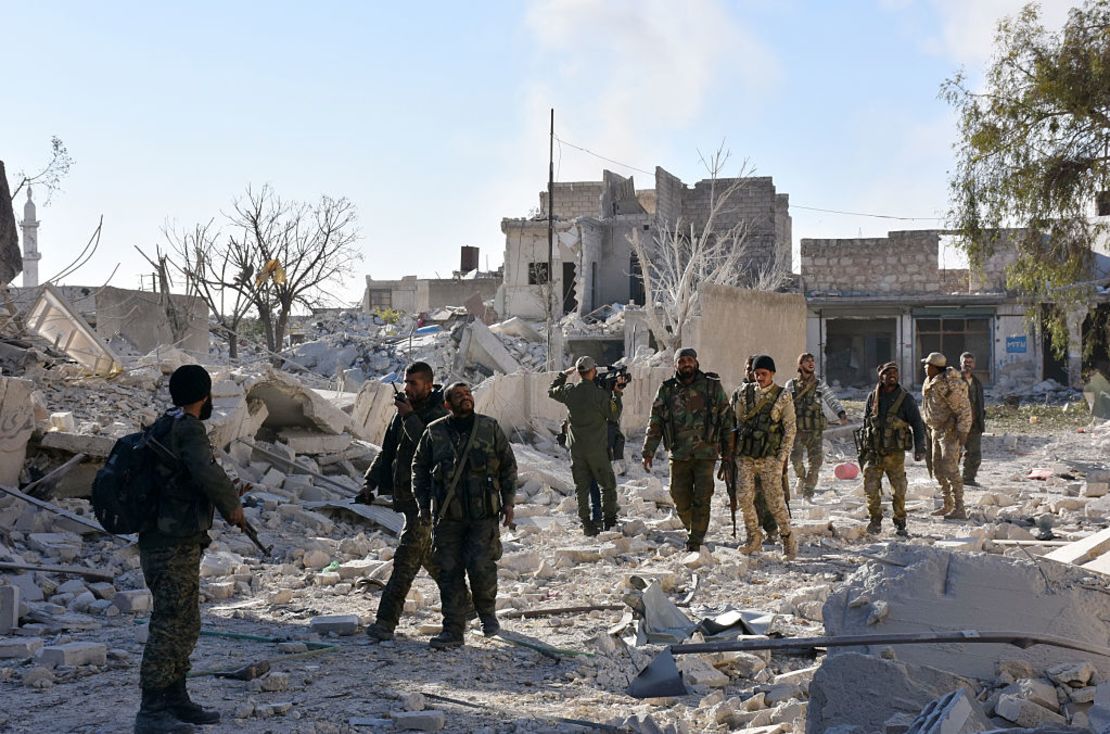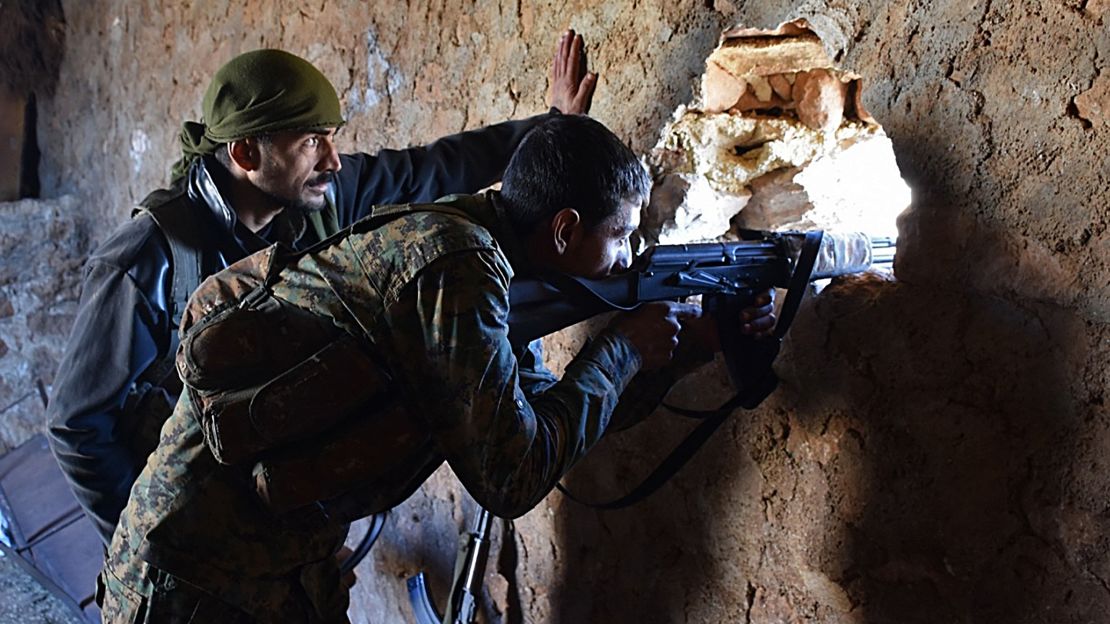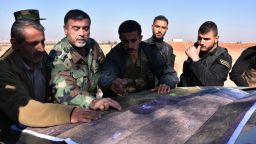Story highlights
NEW: Rescuers urge aid groups to intervene now
NEW: Assad forces successfully drive wedge through rebel-held zone
Weary and frightened residents of eastern Aleppo face an “imminent humanitarian disaster” as Syrian regime forces rack up large territorial gains in the besieged city, according to the White Helmets, the self-styled Syria Civil Defense volunteer group.
“These civilians have no access to basic food materials and medicines in light of internal displacement from eastern to western neighborhoods in the besieged part of the city,” the White Helmets said in a statement on Monday.
“Moreover, the available houses or shelters are not adequate to accommodate and protect them.”
The group wants humanitarian, aid and medical groups to “immediately” intervene in eastern Aleppo.
Taking the city would mark a turning point
Government forces and armed paramilitary groups loyal to Syrian President Bashar al-Assad began a renewed push toward eastern Aleppo on November 15, backed by airstrikes following a three-week lull.
And now they have succeeded in driving a wedge through the sector that has been held by rebels for more than four years, displacing thousands of civilians.
Assad has vowed to take the whole of Aleppo, which has for years been divided between the largely regime-held west and rebel-held east.
Taking the city would mark a turning point in Syria, where civil unrest that began in early 2011 has morphed into a countrywide armed conflict.
The regime’s gains in Aleppo have been much faster than expected, and the bombing and shelling hasn’t slowed.
“Bodies are on the ground. We can’t do anything because the shelling is too heavy,” said Ahmad Edrees, a resident from Karam al-Baik on the current frontline.
“There are dozens of casualties and only one clinic is left,” he told CNN, calling the situation unbearable.

Rebels have withdrawn from the northern areas, a fighter there told CNN, leaving eastern Aleppo almost split into two parts.
Game-changer
Aleppo is the last urban rebel stronghold in Syria, and seizing it would put the regime back in control of all four major cities in the country. Aleppo is Syria’s second-largest city and was once its commercial hub.
“If the regime retakes the whole of Aleppo, it would be a very symbolic victory,” Fabrice Balanche, a visiting fellow at the Washington Institute, told CNN.
“It would mean it can take the north of the country and would leave no possibility for a real political or military opposition to the Assad regime.”
Balanche pointed out that with the election of US President-elect Donald Trump, international support for rebel groups opposing the regime would likely wane.
But while recapturing Aleppo would mark a turning point, it won’t bring the war to an end any time soon.
There are between 100,000 and 150,000 rebels in Syria, Balanche said, and they are unlikely to lay down arms in large numbers.
“There will be a reduction of violence, but we will not see any peace in the next few months,” Balanche said.

500 killed in 2 weeks
Forces on Saturday broke through rebel defense lines on the ground and by Monday had taken much of the area’s north.
Russian state media TASS reported that regime forces were now in control of 40% of eastern Aleppo, citing a Russian Defense Ministry “reconciliation center” in Syria.
Russia has been the Syrian government’s closest and most powerful ally in the country’s civil war, carrying out regular airstrikes to prop up Assad’s regime.

More than 500 people have been killed in the past two weeks since the push began, according to the White Helmets. Another 1,800 have been injured, the group said.
There’s been minimal resistance from rebels, several civilians on the ground said.
Among neighborhoods now in regime hands is eastern Aleppo’s biggest district, Masaken Hanano, while on Monday forces retook another key district, al-Sakhour, according to Syrian state media.
‘Worried about reprisals’
Eastern Aleppo has become the epicenter of Syria’s civil war – the government has besieged it a number of times.
Its most recent siege has cut off both the rebels and civilians from the outside world, leaving communities on the brink of starvation – without sufficient food, clean water, fuel and medical supplies.
Around 10,000 people have fled the area in the past few days, the UK-based Syrian Observatory for Human Rights reported Monday, adding that 6,000 of them fled to areas controlled by Kurdish forces.
And more than 3,000 fled to government-controlled parts of the city in the last 24 hours, according to Russian and Syrian state media, quoting the Russian reconciliation center in Syria located on the Hmeymim military base.
An estimated 250,000 people have been trapped in eastern Aleppo since July, when regime forces besieged the area. Among them are 100,000 children, says UNICEF, the UN’s child rights organization.
Others are too afraid to use the government’s “human corridors,” fearing reprisal once they escape. But staying to see the regime regain neighborhoods is not an option for many either.
“Shelling, lack of food, lack of treatment and freezing is nothing in comparison with being in hands of Assad and his allies,” tweeted a resident activist there.
Safe passage?
Human rights group Amnesty International has called for safe passage for civilians.
“We are calling on all parties to the conflict to allow free and unrestricted movement of civilians … without threat or constraint,” said Diana Semaan, a Syria campaigner with Amnesty International.

“Activists I spoke to in eastern Aleppo are worried about reprisals for being outspoken critics of the government if rebels lose control of the entire city,” she said.
Several chemical attacks have also been reported over the past two weeks. The Aleppo Media Center activist group said that barrel bombs laced with chlorine were dropped on two neighborhoods on Monday. CNN has not been able to independently verify the recent alleged chemical attacks, but has seen footage of the aftermath of some. Children have been among victims in these attacks.
A UN investigation in late August found that chemical weapons had been used in Syria, both by the national air force and ISIS militants. But barrel bombs are typically dropped by regime forces.
CNN’s Joe Sterling, Eliza Mackintosh, Nick Paton Walsh, Schams Elwazer and Kareem Khadder contributed to this report.



